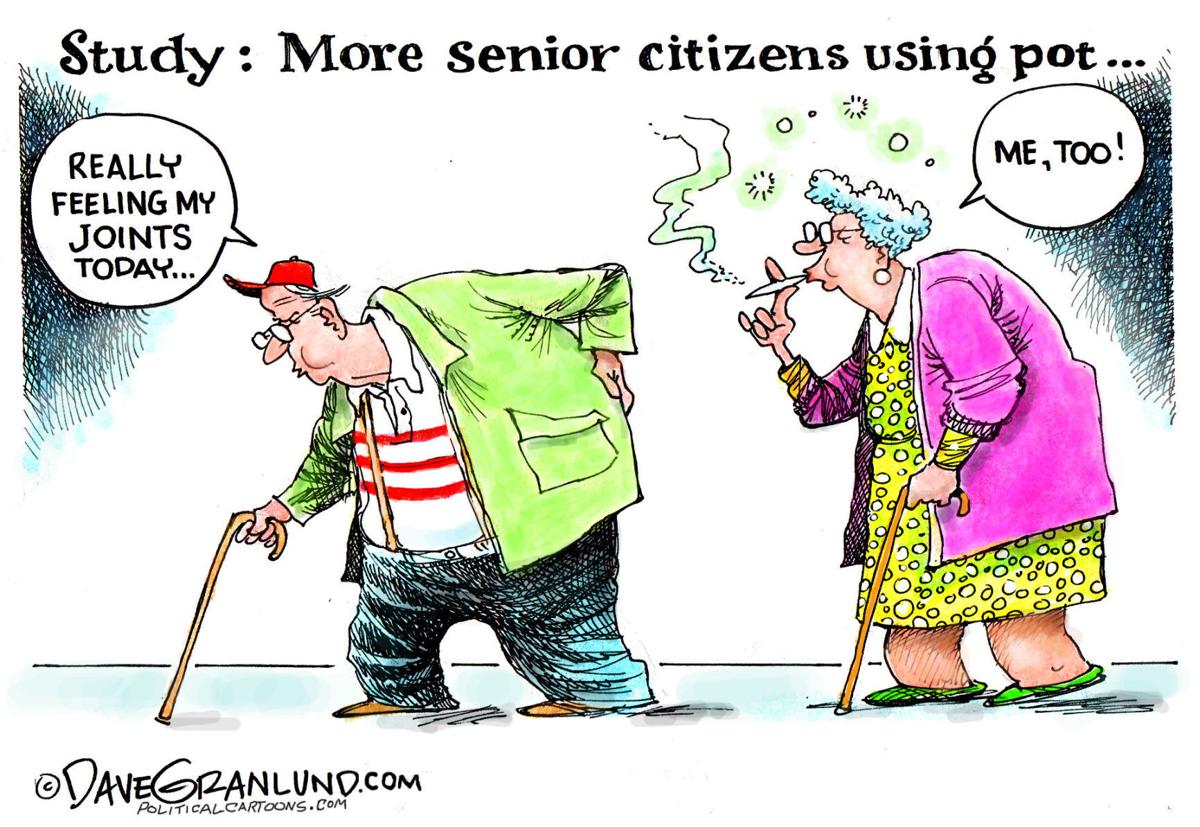
By John Kitterman
Kitterman teaches in the English program at Ferrum College.
It was refreshing to watch the Oscars and be reminded that in a time of nationalistic distrust and exclusion, the arts are an inclusive, unifying experience, none more so than movies which are arguably the most powerful global standard bearer of our democratic values.
It was refreshing, but this was an awards show, not a session of Congress. Poets are legislators of the spirit, but our daily lives are more affected by laws elected officials pass. For example, the fact that 160 million Americans are criminals, 26 million of them actively. I’m referring to people who say they have tried marijuana (49 percent) or currently use it (8 percent).
One of The Roanoke Times Writers Group, John Long, believes we should “think long and hard before legalizing pot.” Well, how long is long? I’ve been thinking about this since I first smoked weed in the ’60s when I was a UVA student and realized I could get busted for something I didn’t consider anybody else’s business. Is 50 years long enough?
Since then I have been a mental health worker, high school teacher, and college professor, but I haven’t seen the evidence that recreational use warrants punishment. Long’s conclusion that “decriminalizing pot use might make some recreational users … more comfortable, but it would not come without significant detriment to our society” makes me think: “Some” users?
How about “all”? Who wants to have Big Brother looking over their shoulder threatening them with getting kicked out of school or losing their job or license, or worse, for catching a buzz, a fact of life for tens of millions of Americans? No, Long has it backwards: the “significant detriment to our society” has been the criminalization of weed.
Sure, it’s probably not a great thing to be setting fire to any substance and then inhaling the smoke. But it’s human nature to want to alter the mind, and evolution has probably hard-wired us for experimentation. Odysseus did drag his men from the Land of the Lotus Eaters because they weren’t following his orders, but even that was for an opioid, not a stimulant.
Humans have used marijuana for thousands of years for medicine and religion, but the criminalization in the U.S. only began in 1937 with The Marijuana Tax Act under the leadership of a few religious zealots despite the overwhelming scientific evidence that it was not addictive and did not induce criminal behavior.
Long’s op-ed doesn’t even compare marijuana use to the much higher use and worse effects of alcohol and cigarettes which are not only legal but also provide a huge economic benefit to state and local economies. It’s hypocrisy to argue against marijuana legalization and not make a similar argument against the explosion of breweries and vineyards in our region. Roanoke went nuts trying to get Deschutes to come here, but somehow drinking beer is okay while smoking weed is not? Are you kidding me, dude?
The statistics Long uses aren’t compelling either. (By the way, it’s .7 percent, not .3 percent, incarcerated for possession.) My sense is that the advocacy group he cites is more interested in stopping the commercialization of weed than in criminalizing its use, although, as retired Judge Richard Pattisall argued in the Roanoke Times Feb. 26 commentary, “Medical Marijuana Could Be a Cash Crop for Coalfields.” Just make sure those watchdog government agencies aren’t neutered by the new administration.
I suspect that conservatives have been waiting to get revenge on those long-haired social activists who were letting their freak flags fly in the 60s. Like the Oscars, the 60s promoted equality for women, gays, and yes, people who wanted the freedom to explore their consciousness instead of being told that they had to stay straight, i.e. become another cog in the economy. And of course not to question the politicians who were sending us to Vietnam.
Every drug is bad if you use it too much. Coca Cola, for example, another stimulant. But you can’t legislate your way out of human nature by imposing personal values on people under the disguise of public health. If drug use was really considered a health problem back in the ’60s we wouldn’t be having this discussion now. Instead, it was considered a criminal justice problem, i.e. a way to disenfranchise minorities and poor people whom people in power were afraid of by wielding the awful mechanism of the $1 trillion War on Drugs, skyrocketing the prison population, half of whom are black men.
Education, not criminalization, is the way to stop drug abuse.
Monday, 15 May 2017
Kitterman: Criminalizing pot creates criminals
Subscribe to:
Post Comments (Atom)


No comments:
Post a Comment